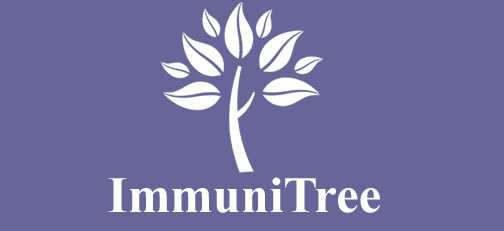Why ImmuniTree?
Immunity (roughly translated as ojas in Ayurveda or jing in Chinese medicine) can be seen as a set of factors that contribute to resistance against illness and infection, including how people fare in the coronavirus pandemic occurring throughout the world today. Decreased immunity causes accelerated aging, degeneration, and disease, including neurodegenerative disease. Our immunity is right at the interface or boundary between us and the outside world.
Ayurveda posits that the most important factor influencing the immune system is the health and strength of our digestive system. Most of the immune system lies in the half inch between the intestinal villi (absorptive surface of intestine) and the lymphatic drainage that surrounds the gut. From an Ayurvedic perspective, the detox and digestive channels are one and the same! So, improving digestion through proper food choices, preparation, timing, amount of food, etc. along with detoxifying and eliminating toxins improve the immune system. Ayurveda also posits “you are what you digest” and one aim is to improve digestive fire (agni, the root word for our verb, ignite) so what you eat is absorbed and bioavailable to your body. Another factor in the strength of our immune systems is exposure to natural sunlight, whereby vitamin D is produced, providing an attachment mechanism for T cells (innate immune cells) to engage. And the third important mechanism for boosting immunity is to manage the stress in our lives. The adrenal glands, under stress, produce hormones such as cortisol and norepinephrine that take a great toll on our immune systems.
There are also four “barriers” or boundaries that comprise our immune systems: the gut/intestinal barrier, the lung barrier, the skin barrier, and the blood-brain/CSF-brain barrier. Through Ayurveda, building from the ground up, all of these barriers are strengthened to improve immunity and overall health and well-being. It is a multi-pronged approach over time through education about lifestyle and diet, and the adjunctive use, when needed, of natural herbs and spices.
I have practiced western medicine for over thirty years and have noticed over time that we are very good at diagnosing disease, but we are not as good at preventing the formation of disease. We don’t have many tools in western medicine for identifying imbalance BEFORE a disease occurs. This is the beauty of Ayurveda: through detailed history taking, pulse taking, examination of tongue and skin, pattern recognition, etc., we can identify imbalances and offer ways to come back into balance. Having both the western and eastern perspectives on health and disease affords a larger tool kit to identify imbalances and make adjustments.
And, lastly, I love the concept of a tree as a symbol of our innate immune systems. Experts now understand that, unlike in humans, the 'immune system' of a tree does not slow down in old age, but keeps trees protected against fungi and pathogens. The immune system is just as strong in older trees as in young trees, whereas in older humans the immune system starts to be compromised. This could explain why trees are so successful. Why could that be? Perhaps, because fifty percent or more of a tree is below ground, trees are grounded and have something to teach us about being grounded! In addition to removing carbon dioxide from the air, trees also release antimicrobial oils called phytonicides that actually strengthen the human immune system. They also reduce stress, anxiety and aid sleep. Trees, with their innate immunity and longevity have something to teach us about our own immunity.
“Place” by W.S. Merwin
On the last day of the world
I would want to plant a tree
what for
not the fruit
the tree that bears the fruit
is not the one that was planted
I want the tree that stands
in the earth for the first time
with the sun already
going down
and the water
touching its roots
in the earth full of the dead
and the clouds passing
one by one
over its leaves.

